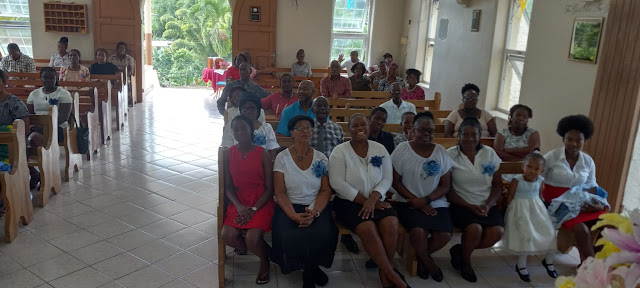2023 CWM Youth Consultation on Ecology and Economy in the Pacific
Tuvalu's very existence hangs in the balance as rising sea levels threaten to erase it from the world map. In the coming years, we will delve into the multifaceted challenges that Tuvalu confronts as a result of climate change. Throughout our one week spent in Tuvalu for this consultation, I have learned and examined the impacts of climate injustices on Tuvalu's environment, economy, and cultural heritage and explored the efforts of Tuvaluans to adapt and advocate for international action.
The consequences of rising sea levels extend far beyond the loss of land as experienced. The Tuvaluans, just like any other Pacific Island Nation are heavily dependent on their environment for their livelihoods, with fishing and agriculture being primary sources of income. However, Tuvalu is on the frontline of the climate crisis, facing a multitude of challenges ranging from existential threats to physical existence to disruptions in its economy, environment, and, culture. These effects highlight the urgent need for global action to mitigate climate change and to offer our support to them."For us here in Tuvalu, it's about saving us, it's not about saving the mammals, it's not about saving the dolphins, it's about us, human beings, that's us, but for them, it's about rescuing their economies"
"We do not want to become climate refugees for something that we did not cause. Our contribution to the issue of climate change is almost next to nothing, it is 0.00001, and yet we have to pay the cost for those who are living the luxurious life around the world"
For us as Pacific Islands, it is about people, it is about our lands, it's about our ocean and crucially, it is about God. The God that gives us life.
Dr Maina Talia also discusses the importance of our connections to our lands. After our mothers give birth, their placentas will be buried on our soil to signify the importance of our connection to our fanua, to signify a life being born out of a cry, and as we bury the umbilical cord of a new life, we are reminded that whatever happens in the future, we are still fighting.
STANDING WITH TUVALU!!!
PRAYERS FOR OUR BEAUTIFUL TUVALU!!!
God is bigger than our hopes and with and through him, our hopes can never become hopeless.
Acknowledging the efforts made by the Council of World Mission Pacific Region for this one week of meaningful discussions and engaging with the people of Tuvalu.
Fakafetai Lasi.










Comments
Post a Comment